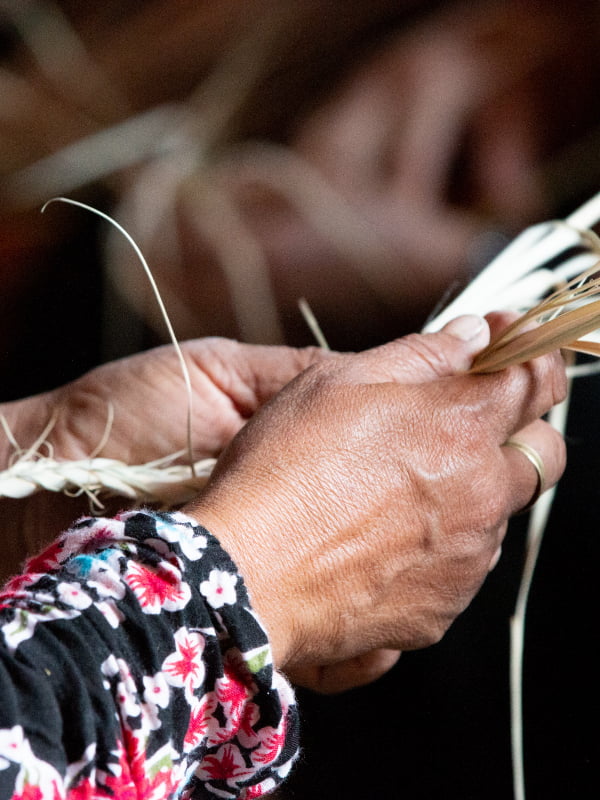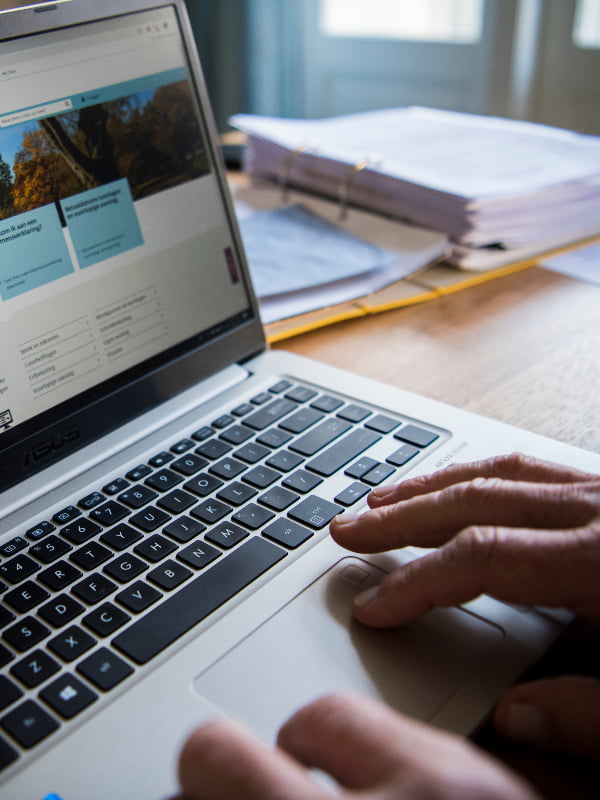Sectoral Partnerships - Pillar 1
Is your company, sector or civil society organisation active in the Netherlands? Are you active in an International Sectoral agreement guided by the Social and Economic Council of the Netherlands? Then, you can apply for the Sectoral Partnerships International MVO.
By working together with companies and organisations within your sector, you tackle risks together. The Subsidy Programme Sectoral Partnerships International MVO Pillar 1 supports you in carrying out 1 or more of the 6 due diligence steps following the OECD guidelines.
Budget and application period
New subsidy policy framework
Netherlands Enterprise Agency (RVO) has been carrying out the subsidy programme Sectoral Partnerships since 2022. After an evaluation in 2023, the Netherlands Ministry of Foreign Affairs updated the subsidy policy framework. The minister shared the evaluation results and advice in a parliamentary letter. The letter states that:
- The Social and Economic Council of the Netherlands (SER) will play a role in preparing businesses for international Responsible Business Conduct (RBC);
- The assessment criteria and threshold requirements for applicants will be lowered;
- New partnerships must have a duration of 5 years. This will allow the subsidy policy framework to fund projects until 31 December 2029.
About Sectoral Partnerships International MVO
With this programme, we aim to make it easier for Dutch entrepreneurs to meet OECD guidelines and United Nations (UN) human rights and business principles. This way, entrepreneurs can address and reduce the worst risks in their value chains together. These risks include human rights violations, child labour and environmental hazards.
By carrying out due diligence in collaboration with companies in their sector, entrepreneurs can:
- Lower individual costs;
- Work on mutual trust;
- Learn from each other; and
- Make an impact together.
This also makes it easier to follow future European legislation.
For whom
Companies, industry organisations and social organisations in the Netherlands can apply for subsidies in collaboration. At least 2 Dutch companies from the same sector or value chain must participate in the partnership. Industry organisations and social organisations can apply.
The Sectoral Partnerships - Pillar 1 programme supports Netherlands-based companies applying the OECD guidelines in collaboration. The sectoral partnerships focus on action perspectives from an International RBC due diligence process within their sector. The 6 steps of due diligence are leading. The activities focus on the most significant risks in production countries.
Budget and duration
Sectoral Partnerships International MVO (Pillar 1) is a 5-year subsidy programme with 2 application rounds that run from 2024 until 2029. The Netherlands Enterprise Agency (RVO) awards this subsidy on a first-come, first-served basis.
For the application round 1 October 2024 until 30 June 2025, a total of €4,275,000 is available.
Applicants must start their project within 6 months after receiving the subsidy and complete their project within 1 to 3 years. Applicants must complete activities by 31 December 2029.
The subsidy per application is a maximum of 70% of the eligible costs, with a maximum of €225,000 per year. The costs of social organisations can be 100% eligible.
For the first opening, a maximum subsidy of €675,000 per application applies to activities that applicants carry out within 3 years, per International MVO sector agreement.
Terms and conditions
The partnership emerges from an International RBC sector agreement. A partnership:
- consists of at least 2 or more companies established in the Netherlands (not industry organisations);
- consists of individual companies;
- wants to apply due diligence jointly;
- is part of the same sector or value chain.
Also, the partnership involves at least 1 civil society organisation. Participating Dutch companies:
- operate in a sector or value chain that has a link to the Dutch market;
- carry out their business activities mainly in or focused on the Netherlands;
- carry out business activities that do not mainly consist of consulting.
Besides a minimum of 2 companies and 1 civil society organisation, industry associations can also be partners in a partnership. Industry associations cannot participate in a partnership on behalf of companies as an individual company must apply due diligence. However, industry associations can share appropriate solutions and lessons learnt in the sector partnership.
- All partners of the partnership must add value to the achievement of the objective(s) of a partnership applying for a subsidy;
- The applicant and the other (civil society) organisations are part of the same International RBC Sector Agreement. The coordinator must always be part of the partnership;
- The activities must be directly linked to the main risks and conditions in producing countries.
International RBC
Your project follows international Responsible Business Conduct (RBC) guidelines. We weigh international RBC heavily when assessing your funding application. We ask you to:
- act following the OECD guidelines;
- demonstrate how you carry out your activities following these OECD guidelines;
- make a proper risk analysis of social and environmental risks; and
- communicate what measures you take to prevent and reduce these risks.
At the start of your relationship with us, we will make agreements with you on international RBC. For example, how (often) you report on the focal points of your risk analyses.
Your project follows the guidelines for international responsible business conduct (RBC). We take RBC into account when assessing your subsidy application. Subsidy applicants must:
- Follow the OECD guidelines;
- Show how they carry out their activities following the OECD guidelines;
- Carry out a risk analysis of social and environmental risks;
- Show which measures their company takes to prevent or reduce these risks.
At the start of your relationship with us, we agree on RBC. For example, how and often do you report on the focus areas of your risk analyses?
Applications
Would you like a non-binding consultation with one of our advisors first? Email sesam@rvo.nl or call +31 (0)88 042 42 42.
Sectoral Cooperation International RBC Pillar 1 is open from Tuesday, 1 October 2024, 09:00 CEST time until Monday, 30 June 2025, 12:00 CEST (noon).
The applicant applies on behalf of the partnership. During an opening, you can download the application documents under 'Annexes' (in English).
Sectoral Cooperation International MVO subsidy application
- Apply for eRecognition level 3. Processing your application may take several weeks;
- Log in with eRecognition level 3 and apply for a subsidy via eLoket mijn.rvo.nl. Complete your application and all annexes in English.
- Submit your application on time. Pillar 1 of the subsidy scheme Sectoral Cooperation International RBC works on a 'first come, first served' basis. This means that we assess complete subsidy applications in order of receipt. If the subsidy applications have surpassed the available budget, the order in which we assess applications is determined by drawing lots.
- We will only consider complete applications in English, including all necessary annexes. If your application is not complete, we will ask you for extra information. If we need more information, the date on which we receive this extra information will count as the date of your application.
What you need for your application
Please have the following information ready when submitting your application:
- your Chamber of Commerce number (Dutch applicant);
- your address details;
- your bank details;
- contact details of the partners;
- completed annexes.
Attachments
You will submit a number of documents with your application:
Annex I Project Proposal
Annex II Result sheet
Annex III Project budget calculation Pillar 1
Annex IV Partner forms for all project partners
Annex V Cooperation agreement
Annex VI RBC sector agreement
Annex VII Minutes of the steering group of the sector agreement meeting in which this proposal and action plan are supported
Annex VIII De-minimis self-declaration for each company in the partnership
Annex IX Authorisation intermediary party (if applicable)
Annex X DD Assessment, 2 options:
- the company’s assessment within the sector initiative or
- the RVO Due Diligence Monitoring tool
After your application
We will assess your application based on the criteria in the Government Gazette. You will hear within 13 weeks whether we approve your application.
Submitting a progress report
When we approve your subsidy request, you must report on the progress of the project.
Reporting changes
You must report changes in the project, budget, implementation and organisation. For some changes, you have to ask our permission in advance. If you do not ask our permission in advance, you run the risk of not receiving a subsidy for the changed project parts or even for the entire project.
Submitting a final report
At the end of your project, you must submit a final report.
Background
Worldwide, International RBC risks and abuses occur daily in the value chain of Dutch companies. Examples include:
- harming the natural environment through pollution or reduced biodiversity;
- violating human rights related to land acquisitions; or
- poor working conditions in factories in producer countries.
Addressing abuses in international value chains is a challenge. Dutch companies and civil society organisations cannot solve them alone. But by working together, they can increase their influence in the value chain(s). This experience ensures better embedding of due diligence in the business processes of Dutch companies. This has a positive impact on local manufacturing conditions in producing countries.
Publications
- Sectoral Partnerships - Pillar 1 Government Gazette publication 2024-2029 - 2 August 2024 (in Dutch)
- Amendment of the Sectoral Partnership - Pillar 1 Government Gazette publication 2024 - 2 August 2024 (in Dutch)
- Sectoral Partnerships - Pillar 1 Government Gazette publication 2022-2025 - 29 September 2022 (in Dutch)
Annex I Project Proposal Sectoral Partnerships Sesam Pillar 1 - 2025
Annex II Result Sheet Sectoral Partnerships Sesam Pillar 1 - 2025
Annex III Project budget calculation Sectoral Partnerships Sesam Pillar 1 - 2025
Annex IV Partnerform Sectoral Partnerships - 2025
Annex VIII De-minimisverklaring Sectoral Partnerships - 2025
Annex IX Authorisation Intermediairy Sectoral Partnerships - 2025
Questions about Sectoral Parnerships - Pillar 1?
Or would you like a non-binding consultation with one of our advisors first?
Would you like to contact the Social and Economic Council of the Netherlands?
- Ministry of Foreign Affairs



